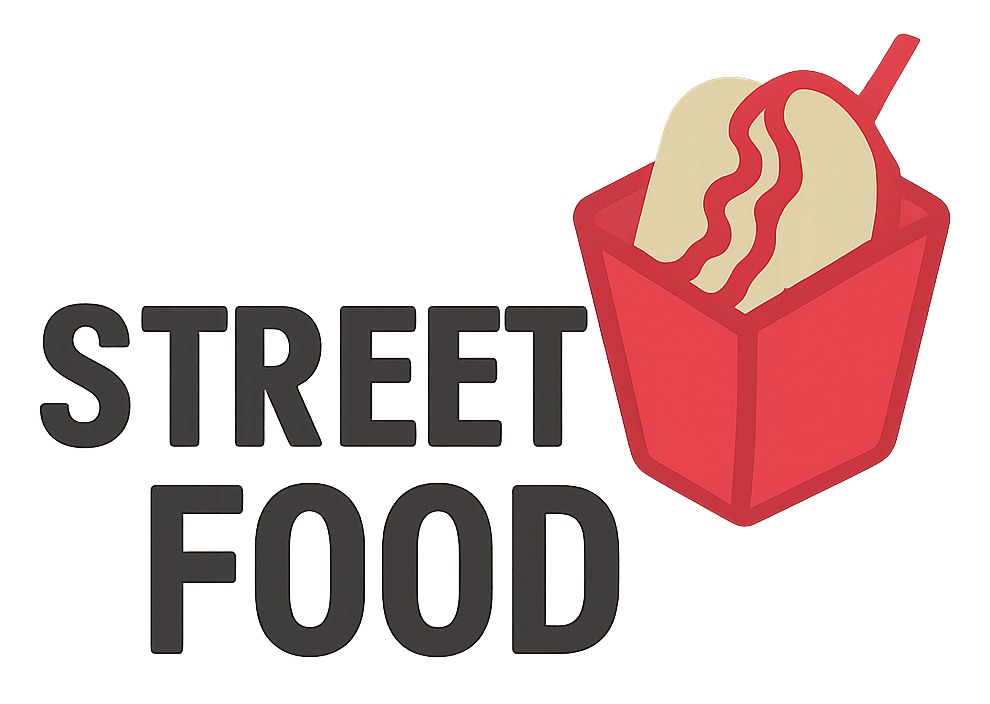Introduction: A Simple Guide to Street Vendor Licenses in the USA
Operating a street vending business in the USA can be an exciting and profitable venture. Whether you’re looking to sell food, goods, or services, setting up shop on public streets or in crowded areas is an excellent way to reach a broad audience. However, before you start your street vending business, it’s essential to understand the legal requirements and process involved in obtaining a Street Vendor License: Easy Guide in the USA.
In this comprehensive guide, we will walk you through the necessary steps to get your street vendor license, the fees involved, and how to stay compliant with local regulations. We’ll also cover common mistakes to avoid, making it easier for you to start your business without any legal hurdles.
What is a Street Vendor License?
A Street Vendor License is an official permit that allows individuals to sell goods or services on public streets, sidewalks, or designated vending areas. Each state, city, and county in the USA may have different regulations, so it’s crucial to understand your specific area’s rules and procedures.
A wide range of things, including food, drinks, clothing, and handcrafted objects, can be sold by street vendors. The type of goods you sell and where you plan to sell them may affect the licensing requirements and process.Obtaining a street vendor license guarantees that you conduct business lawfully and shields you from future penalties or legal problems.
Why Do You Need a Street Vendor License in the USA?
In many cities across the USA, street vendors need a license to operate legally. A Street Vendor License: Easy Guide in the USA ensures that vendors meet public safety, sanitation, and business requirements. The reasons for needing a street vendor license include:
- Compliance with Local Laws: Many cities have strict regulations about where and what street vendors can sell. Having a license ensures you’re following the rules.
- Consumer Protection: By registering your business, you help ensure that consumers are protected from unregulated businesses that may not meet health and safety standards.
- Quality Control: Licensing allows local authorities to monitor vendors to maintain public health and safety standards.
- Minimize Fines: Operating without a license can result in hefty fines or business shutdowns, which could affect your livelihood.
- Marketability: Having a license may also build trust with customers, making them more likely to purchase from you.
Types of Street Vendor Licenses in the USA
There are several types of street vendor licenses depending on what you’re selling and where you’re operating. Some of the common types of Street Vendor Licenses in the USA include:
1.Street food Vendor Licenses in the USA
In the USA, street food vendors are required to obtain several licenses and permits to operate legally. The specific requirements can vary by state, city, and even neighborhood, but here are the key licenses and permits typically needed:
1. Business License
- Purpose: Authorizes the vendor to operate a business within a specific jurisdiction.
- Issuing Authority: City or county government.
- Considerations: Vendors usually need to register their business with the local authorities before operating.
2. Food Vendor License
- Purpose: A specific license for vendors selling food, ensuring they meet health and safety standards.
- Issuing Authority: Local health department or business licensing office.
- Considerations: The license may require an inspection to ensure food handling and safety practices comply with local regulations.

3. Health Permit
- Purpose: Ensures food vendors meet health and sanitation standards.
- Issuing Authority: Local health department.
- Considerations: Vendors may have to pass a food safety inspection, which checks the cleanliness of food preparation areas and the handling of food items.
4. Mobile Food Unit Permit
- Purpose: Required for vendors operating from mobile food trucks or carts.
- Issuing Authority: Local health department or business licensing office.
- Considerations: Mobile units must meet specific regulations regarding food preparation and storage.
5. Sales Tax Permit
- Purpose: Allows vendors to collect sales tax on the food they sell.
- Issuing Authority: State’s department of revenue.
- Considerations: This permit is necessary for vendors to comply with state tax laws.
6. Temporary Event Permit
- Purpose: Allows vendors to sell food at events, festivals, or other temporary locations.
- Issuing Authority: Event organizers or local government.
- Considerations: These permits are typically valid for a limited time and may require additional paperwork or fees.
7. Food Handler Certification
- Purpose: Ensures that vendors and their staff understand proper food safety practices.
- Issuing Authority: Local or state health department.
- Considerations: This certification may require completing an online or in-person food safety course.
8. Zoning or Location Permit
- Purpose: Ensures vendors are operating in legally designated areas for vending.
- Issuing Authority: Local zoning office or city government.
- Considerations: Vendors may need to apply for a permit to operate in specific public or private locations, such as streets or parks.
9. Insurance
- Purpose: Provides coverage for liability claims or accidents that may occur during operation.
- Types: General liability insurance, property insurance, and workers’ compensation (if employing others).
- Considerations: Some cities or venues may require proof of insurance before granting permits.
Key Considerations:
- Local Variations: Regulations can differ greatly depending on where a vendor operates. It’s important to check with the local health department and licensing offices.
- Zoning Laws: Some areas may have restrictions on where street vendors can operate, such as proximity to schools, restaurants, or public spaces.
Street food vendors must carefully follow local regulations to ensure they are operating legally and providing safe, quality food to customers.

2. Merchandise Vendor License
If you’re selling non-food items like clothing, accessories, or art, you’ll typically need a merchandise vendor license. This is often handled by the city’s business licensing department and may require proof of your business name, insurance, and tax registration.
3. Special Event Vendor License
Special event vendors are those who set up at festivals, fairs, or other organized public events. These vendors may need to apply for a temporary license or permit for a specific event and may face additional requirements, such as liability insurance or health and safety inspections.
4. Mobile Vendor License
Mobile vendors who sell from trucks, trailers, or carts typically need a mobile vendor license. These vendors often serve food but may also sell goods such as books or accessories. Your mobile vending unit must comply with local health and safety codes, including sanitation and waste disposal regulations.
Steps to Get a Street Vendor License: Easy Guide in the USA
Obtaining a Street Vendor License in the USA involves a series of steps. While the exact process may vary by location, here is a general guide to help you get started:
Step 1: Research Local Laws and Regulations
The first step in the process is to research the local laws and regulations related to street vending. Depending on your location, there may be city-specific rules regarding where you can operate, the hours you can sell, and the items you can sell. You can usually find this information on your city or county’s official website or by contacting the business licensing department.
Some locations may have restricted areas where vending is not allowed, such as near schools, parks, or government buildings. Additionally, certain streets may require special permits due to high foot traffic or zoning laws.
Step 2: Determine What Type of Vendor License You Need
As mentioned earlier, there are different types of street vendor licenses. You’ll need to determine which license is applicable to your business. For example, if you’re selling food, you’ll need a food vendor license. If you’re selling clothing or merchandise, you’ll need a merchandise vendor license. Once you’ve determined the type, you can move forward with the application process.
Step 3: Gather the Necessary Documents
Before applying for your Street Vendor License, make sure you have all the required documents. Common documentation needed for the application includes:
- Business Registration: Register your business name and obtain an employer identification number (EIN) from the IRS.
- Proof of Identity: A government-issued ID such as a driver’s license or passport.
- Health and Safety Permits: For food vendors, you may need to obtain food handling permits, health inspections, and proof of sanitation practices.
- Insurance: Some areas may require liability insurance to protect against accidents or damages.
- Tax Registration: You may need to register for sales tax permits or other state-specific business taxes.
Step 4: Submit Your Application
Once you have all the required documents, it’s time to submit your application for a Street Vendor License. This may be done online through your city’s business portal, or you may need to visit a physical office to complete the process. The application will include personal details, the type of vendor license you’re applying for, and a description of your business.
Step 5: Pay the Licensing Fee
Most street vendor licenses come with a fee, which varies by location and the type of license. Fees can range from a few dollars to hundreds of dollars annually, depending on your city or county. Be ready to pay this charge at the time of application submission.
Step 6: Wait for Approval
After submitting your application and paying the fee, there may be a waiting period while your application is reviewed. The city or county authorities will typically process your application and conduct any necessary inspections (for food vendors or mobile vendors). If everything is in order, you will receive your street vendor license.
Step 7: Comply with Ongoing Requirements
Once you have your Street Vendor License, make sure you comply with all local regulations. This includes renewing your license annually, passing health inspections (for food vendors), following designated vending hours, and adhering to local zoning laws.
Costs Associated with Street Vendor License
The cost of obtaining a Street Vendor License in the USA can vary widely depending on your location, the type of goods you’re selling, and the duration of the license. Costs may include:
- Application Fee: Usually ranges from $50 to $500, depending on your location and the type of license.
- Inspection Fees: Food vendors may face additional inspection fees, ranging from $100 to $300.
- Insurance: Many cities require vendors to have liability insurance, which can cost between $200 and $1,000 annually.
- Other Permits: In some cases, you may need additional permits, such as health permits, sales tax registration, or parking permits for mobile vendors.

Step 8: Understand and Follow Local Zoning Laws
In many cities, street vendors are subject to local zoning laws that regulate where they can set up their operations. These laws are designed to ensure that vending does not interfere with public safety, traffic flow, or the aesthetic of the neighborhood. When applying for a Street Vendor License, it’s important to familiarize yourself with local zoning regulations to ensure you’re operating in permissible areas.
Some key points to consider include:
- Designated Vending Zones: Certain areas in a city or town may be designated specifically for street vending. This could include popular spots like downtown areas, near parks, or around tourist attractions. If you want to set up in a non-designated area, you might need special permission.
- Distance from Certain Establishments: Many locations require vendors to set up a certain distance away from schools, churches, or other government buildings.
- Traffic Considerations: Vendors operating near busy roads or intersections may need to comply with specific rules, such as limiting the amount of space they occupy on the sidewalk or ensuring pedestrians have ample space to pass.
How to Check Zoning Laws:
- Visit your local government or zoning office’s website.
- Contact the local zoning or planning department to inquire about specific restrictions.
- Some cities may have zoning maps available online that clearly show where vending is allowed.
Step 9: Obtain Necessary Health and Safety Certifications (If Applicable)
If you’re a food vendor, health and safety certifications are crucial. Many states and cities require food vendors to pass a health inspection before issuing a license. These certifications ensure that your business meets food safety standards and public health regulations.
Common Health Certifications Include:
- Food Handler Permit: This is often required for food vendors. It ensures that you understand proper food handling and sanitation practices.
- Health Department Inspections: For food vendors, your cart, truck, or booth will likely need to pass an inspection from your local health department. They will check for cleanliness, food storage, cooking practices, and waste disposal.
- Food Safety Certification: In some areas, a more advanced food safety certification, such as ServSafe, might be required for individuals working with food.
How to Obtain Health and Safety Certifications:
- Enroll in a food safety course, which is often available online or through local health departments.
- Schedule a health inspection with the city’s health department after completing necessary training or certification courses.
- Ensure your vending setup (cart, truck, or booth) is equipped to meet local sanitation and food safety standards.
Step 10: Set Up Your Vending Stand According to Local Requirements
Once you have your Street Vendor License, you’ll need to set up your vending operation according to local rules. Some cities have strict requirements on the size, appearance, and setup of vending stands, especially in busy public spaces.
What to Consider When Setting Up Your Stand:
- Vending Equipment: Ensure your cart, truck, or booth meets safety regulations, including fire safety and structural integrity. For food vendors, you’ll need specialized equipment like refrigerators, food warmers, and fire extinguishers.
- Signage: Many cities regulate the size and content of signs you can display. Ensure your business sign complies with any rules regarding font size, colors, and location.
- Waste Management: Vendors are typically required to dispose of waste properly, including food scraps and trash. Make sure you have a system in place for waste collection and disposal.
Key Local Requirements:
- Permitted Hours of Operation: Some cities impose time limits on when vendors can sell goods, usually during peak hours (e.g., 8 a.m. to 8 p.m.). You’ll need to check if such restrictions apply in your area.
- Permitted Locations: As mentioned earlier, many cities designate specific vending zones, so make sure you are vending in an area where it is allowed. Avoid setting up in restricted locations or without a designated permit.
- Public Safety: In some cities, you must make sure that your vending setup does not obstruct pedestrian or vehicle traffic. This may mean adhering to specific placement rules (e.g., maintaining a certain distance from intersections or crosswalks).
Step 11: Understand Sales Tax and Business Taxes
As a street vendor in the USA, you’ll be required to pay taxes on your sales, just like any other business. The most common tax that street vendors need to understand is sales tax, which applies to the sale of goods and services.
Steps to Handle Sales Tax:
- Register for Sales Tax: In order to collect and remit taxes, you must register with your state’s Department of Revenue if your state has a sales tax.. Each state has different requirements for how much tax to charge and when to remit it.
- Collect Sales Tax: Once registered, you’ll be responsible for collecting sales tax from your customers based on your local rate. Make sure to clearly display the prices, including tax, so customers understand what they’re paying.
- Remit Sales Tax: You’ll need to file periodic sales tax returns with your state’s Department of Revenue. This could be quarterly or annually, depending on your sales volume.
Other Business Taxes to Consider:
- Income Tax: As a self-employed vendor, you will report your income on your personal tax return. Be sure to track your earnings and expenses to ensure you’re reporting accurately.
- Federal Taxes: In addition to state and local taxes, you’ll also need to pay federal taxes to the IRS. Make sure to report your business income and pay any necessary taxes.
- Self-Employment Tax: You are liable for self-employment taxes whether you are a partnership partner or a sole proprietor. This covers Social Security and Medicare taxes.

Step 12: Build and Maintain Good Relationships with Customers and Local Authorities
Developing ties with local officials and clients is one of the most neglected facets of being a street vendor. A positive reputation can go a long way in ensuring your business is sustainable and continues to grow.
Tips for Building Relationships:
- Customer Service: Treat your customers with respect, and engage with them in a friendly manner. Word of mouth is powerful, and satisfied customers are more likely to recommend your business to others.
- Stay Compliant with Local Authorities: Regularly check in with local authorities to ensure you remain compliant with any new regulations. If you’re aware of any changes to laws or licensing, adjust your business accordingly to avoid fines.
- Networking: Join local business associations or street vendor groups to network with other vendors. This can provide you with valuable resources and knowledge on best practices.
Step 13: Stay Up-to-Date with Changing Regulations
Laws and regulations surrounding street vending are not static. They can change due to new local ordinances, state-level laws, or even federal guidelines. Staying informed about these changes will help you maintain your Street Vendor License and avoid any penalties or operational disruptions.
How to Stay Informed:
- Follow Local News and Government Websites: Local government websites, business news, and press releases often provide updates on changes to street vending laws.
- Attend City Meetings or Forums: Many cities hold public meetings or forums where new laws and regulations are discussed. These events can be an excellent opportunity to stay ahead of regulatory changes.
- Consult a Legal Expert: If you’re uncertain about new rules or need clarification, consulting with a business attorney or legal expert in street vending can help you stay compliant.
Conclusion: Street Vendor License: Easy Guide in the USA
Getting a Street Vendor License: Easy Guide in the USA is an essential step for any aspiring street vendor. By following this guide, you can navigate the licensing process with confidence, ensuring that you’re operating legally and in compliance with local regulations.
While the steps and fees involved may vary by location, understanding the requirements and staying informed will help you avoid common pitfalls and set you up for a successful vending business. Always research your local laws, gather the necessary documents, and be prepared for any inspections or fees that may come your way.
Starting your street vending business with a proper license not only protects you from fines and legal trouble but also builds credibility with your customers. Good luck with your street vending journey!
FAQs:
1. What is a Street Vendor License?
A Street Vendor License is an official permit issued by a municipal authority that allows individuals to sell goods, food, or services in public spaces legally. It helps regulate street vending and ensures public safety and order.
2. Why do street vendors need a license?
Licenses are required to prevent overcrowding, maintain hygiene standards, ensure fair use of public spaces, and protect vendors from harassment or eviction by authorities. It also provides them with legal recognition.
3. Who issues the Street Vendor License?
Typically, the local municipal corporation, city council, or town authority issues the license. In some areas, special committees like the Town Vending Committee (TVC) are responsible.
4. Who is eligible for a Street Vendor License?
Any individual engaged in vending goods, food, or services on streets, pavements, or designated vending zones can apply. Eligibility may require proof of identity, residence, and sometimes proof of vending activity.
5. What documents are usually required for the license?
Common documents include:
Proof of identity (Aadhaar, passport, etc.)
Proof of residence
Photographs
Application form
Sometimes, a recommendation or verification by the vending committee.
6. How long is a Street Vendor License valid?
The validity varies by region but usually ranges from 1 to 3 years. Renewal is required after expiration, subject to payment of a fee and compliance with regulations.
7. What are the benefits of having a Street Vendor License?
Legal protection from eviction or fines
Access to designated vending zones
Ability to apply for loans or government support schemes
Recognition as a legitimate business operator
8. Can a Street Vendor sell anywhere with the license?
No. Vendors are usually restricted to specific vending zones or areas designated by the municipality. Selling outside those zones may result in penalties or license cancellation.
9. What happens if a vendor operates without a license?
Unlicensed vendors may face penalties such as fines, confiscation of goods, or eviction. Repeat offenses can result in legal action.
10. Can a Street Vendor License be transferred or inherited?
Generally, licenses are non-transferable. However, in some jurisdictions, family members may be allowed to continue vending under the same license in case of the vendor’s death.






